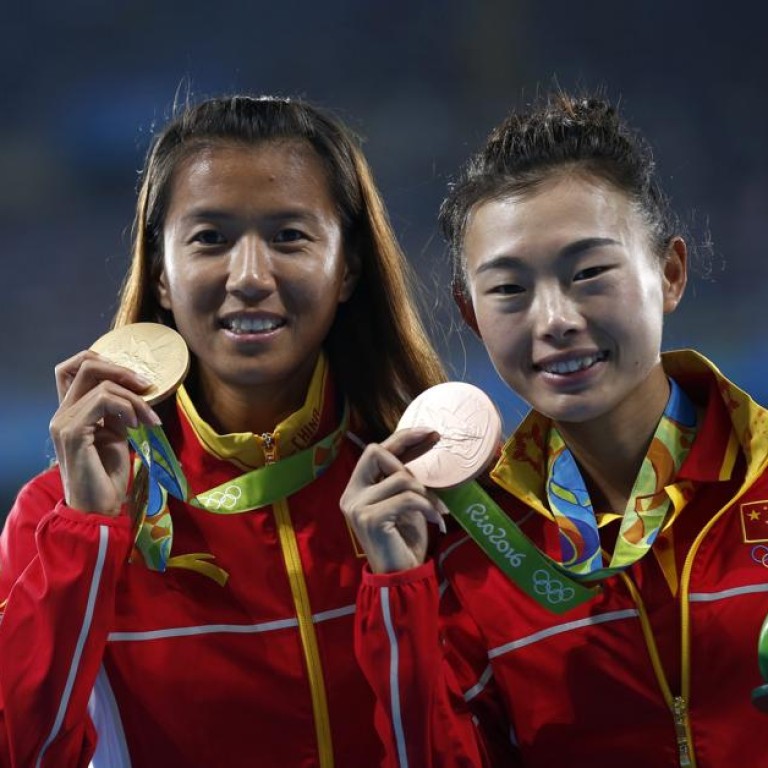
Right on track: Rio athletics success ‘shows China on course’ for all-round greatness
China’s athletics Olympians have every reasons to be over the moon about their results in Rio. With two golds, two silvers and two bronzes so far, the track and field team have reportedly delivered their best-ever performance at the Olympics.
China’s athletics Olympians have every reasons to be over the moon about their results in Rio.
With two golds, two silvers and two bronzes so far, the track and field team have reportedly delivered their best-ever performance at the Olympics.
WATCH: golden moments on Day 15 at the Rio Olympics
While Chinese Olympians are traditionally strong in gymnastics, diving and swimming, athletic has long been one of their weakest disciplines.
“My victory has proved that athletes with yellow skin can run as fast as those with black or white skins,” 110-metres hurdler Liu Xiang declared after taking gold at the 2004 Athens Games.

In Rio, Chinese athletes won gold in the men’s and women’s 20km race walk; silver in men’s 20km race walk and women’s hammer throw; and bronze in men’s triple jump and women’s 20km race walk.
Chinese sprinters also made history in the 4x100m men’s relay, finishing fourth in the final.
Back at the 2012 London Olympics, China’s athletics team won one gold, two silvers and three bronzes.
That was a sharp improvement from the Beijing Games, when Chinese track and field athletes captured just two bronze medals.
But why it that some countries have traditionally dominated certain disciplines – such as China has in diving and Jamaica in running – while they are relatively weak in other areas?
Lee Igel, co-director of New York University’s Sports and Society programme, said the theory that people in some countries have muscle structures and body types that allow them to excel in certain sports only tells part of the story.
“There is a need to look at some other markers, including how athletics is infused throughout an educational system, how athletics is made a part of public health programmes, and how athletics reflects specific cultures and societies,” he said.

“Of course, congenital factors matter. But consider how rapidly China has gone from a nation that produced gold medal table tennis and badminton players to a nation that competes at that level in swimming, diving, gymnastics, basketball, and many other sports,” he said.
“Now that it is gaining systematic attention, be on the lookout for China's rising competitiveness in football in the not-too-distant future.”
Among the Chinese track and field athletes who came through with flying colours in Rio was Dong Bin. The 27-year-old leaped into the history book by winning China’s first-ever Olympic medal in triple jumping – a bronze – and only the second for a male Chinese athlete in a field event.
“It’s very special for me because it’s the Olympics. I got my personal best which made me very happy. It's a new landscape for me. I’ve improved so much since coming 10th at London [2012],” he said after the event.

